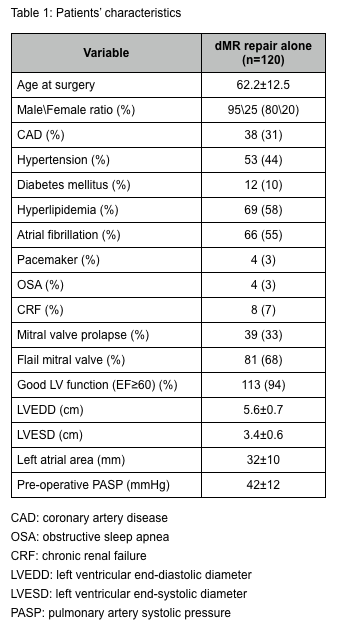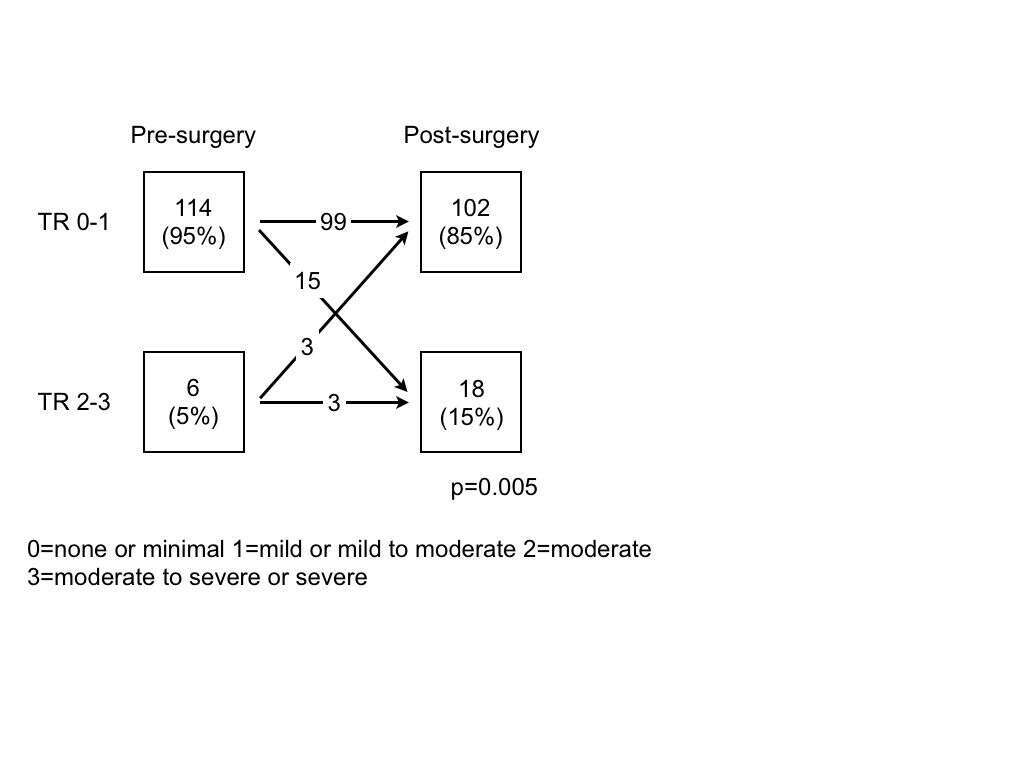Background: The development of significant tricuspid regurgitation (TR) late in the course of rheumatic mitral disease is well known. However, there are conflicting data regarding the development of significant TR following repair of degenerative mitral regurgitation (dMR). We sought to determine the prevalence of significant TR after surgery for dMR.
Methods: We retrospectively studied 120 patients, who underwent surgery of dMR (without concomitant tricuspid valve repair) at Rabin Medical Center between the years 1995-2013. The average follow-up period was 6.6±4 years. The prevalence and progression of functional TR after surgery were determined upon comparison of two echocardiography studies: the preoperative and at the end of follow-up. TR was grades 0-3 (none\trivial, mild, moderate, severe).
Results: The patients’ characteristics are shown in Table 1.The majority of patients (78%) had negligible TR (up to mild TR at the most) prior to surgery. Only two (1.6%) had non-functional TR (prolapse). At the end of follow-up an overall progression in TR severity compared to baseline was noticed (p=0.005). Eighteen patients (15%) had significant TR (grades 2-3) after the surgery; most of them (15 patients) had non-significant TR (grades 0-1) prior to the surgery (Figure 1). Six patients (5%) had severe late TR, albeit none was referred to surgery. In multivariable analysis, old age, and left ventricular dysfunction were independent predictors of late functional TR after surgery of dMR. We formed a score based on 3 parameters at the time of dMR repair (1=absent, 2=present): old age (>65 years), LV dysfunction (EF<60%) and history of atrial fibrillation. A cutoff score value of 1.5 had 87% sensitivity and 60% specificity to predict significant TR at mid-term after dMR repair (ROC 0.75, p=0.003).
Conclusions: Significant TR was uncommon at the time of surgery of dMR. Despite significant trend for progression in its severity, the majority of patients still had non-significant TR at mid-term (1-5 years) follow-up period. Thus, tricuspid valve annuloplasty merits consideration only in selective cases as suggested by our score.



